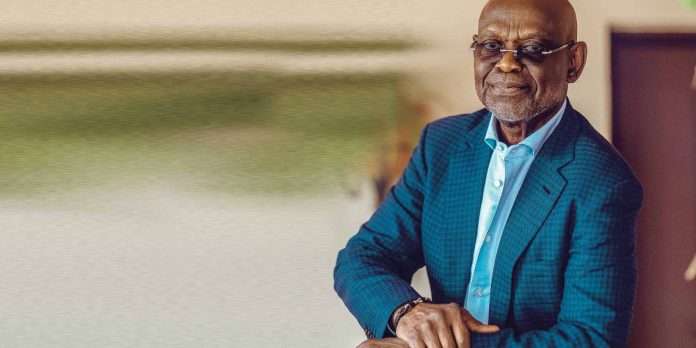|
Getting your Trinity Audio player ready...
|
A former Minister of Finance and Economic Planning under the late President Rawlings’ tenure, Prof. Kwesi Botchwey says Ghana’s economy is taking a nose dive following the high debts accrued in recent times.
The Bank of Ghana reports that the country’s public debt has increased to GH¢344.5 billion, which is 78.4 percent of GDP at the end of November 2021, compared to GH¢291.6 billion, or 76.0 percent of GDP at the end of December 2020.
Prof. Kwesi Botchwey was speaking at the launch of the collective Biography of the Ahwoi and Adu-Gyamfi siblings titled ‘The Children of House No. D13, South Suntreso Kumasi.’
The collective biography provides excerpts of memorable events in the lives of the seven personalities in the spheres of politics, business, family and religion.
“Sadly, we don’t appear to have learnt our lessons. Now moving so perilously close to the edge of the presidency, where we were in the early 80s; with our economy saddled with debts which we cannot even pay to meet our social obligations”.
This is not the first time Prof. Kwesi Botchwey has complained about the economic challenges facing the country.
At his recent 65th Independence Day Lecture, he said, the difficulties could be overcome if the government becomes honest with Ghanaians.
“Our current travails can be overcome provided we level with the people. The solution to a problem begins with recognising that there is one. It must start with the recognition that, it is a crisis and level with the people. We must wind down the hubris, the arrogance, and the show of impunity that the people see.”
The lecture was on the theme: “On the state of the nation’s economy and politics, 65 years after independence, the path to sustainable development and democratic consolidation.”
He added that two areas that affect the economic policy choices being made are continuity in economic planning and democratic consolidation.
These, he suggests, should be looked at as solutions are sorted for bettering the current crisis in the economy.
Ghana is currently battling with huge public debt levels and challenges in revenue generation.
Major financial rating companies like Moody’s and Fitch have all downgraded Ghana’s credit rating.
Moody’s, for instance, said the new rating of the country’s economy reflects the woes Ghana is facing in fixing its liquidity and debt challenges.
Although major watchers of the economic space had advised government to seek an International Monetary Fund bailout, the government is adamant.
SOURCE: citinewsroom.com





